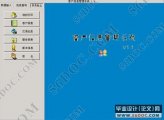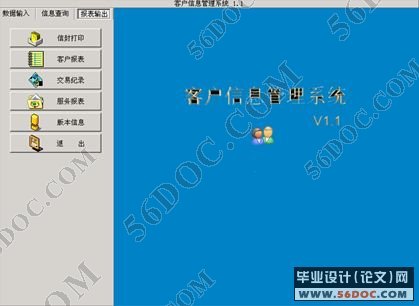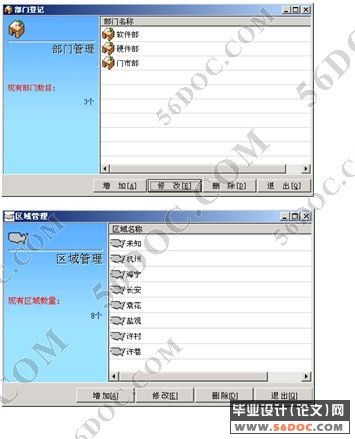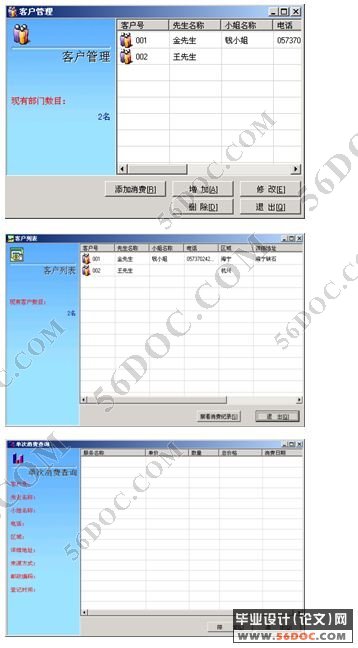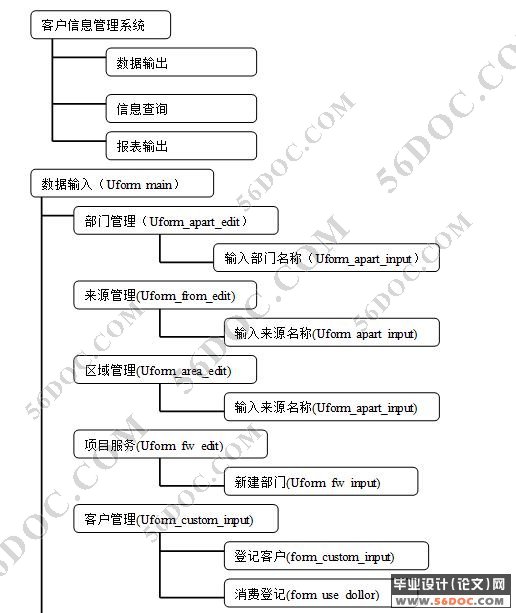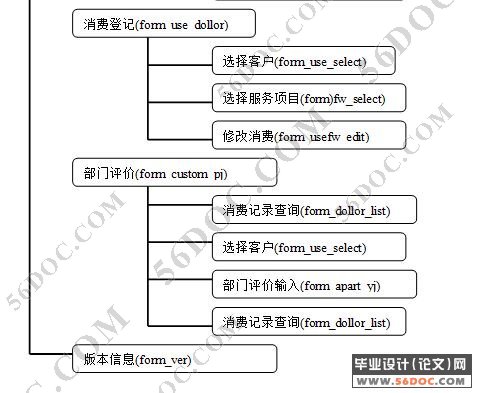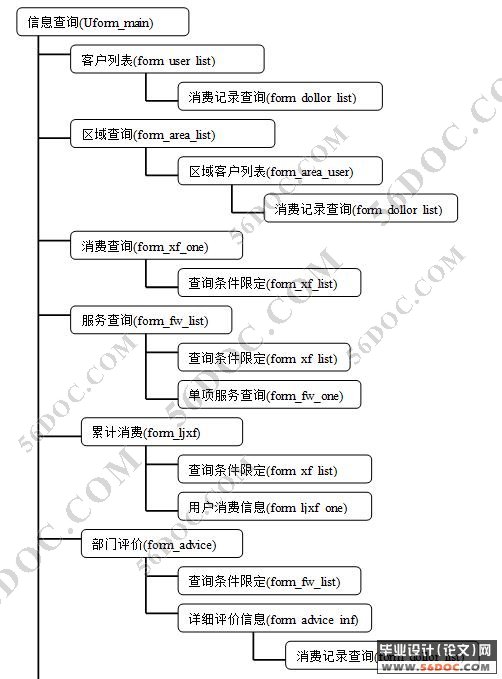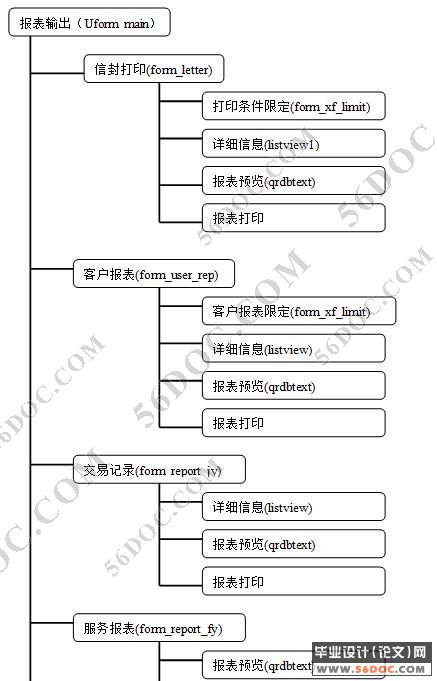摘 要
客户管理系统是典型的信息管理系统(MIS),其开发主要包括后台数据库的建立和维护以及前端应用程序的开发两个方面。对于前者要求建立起数据一致性和完整性强.数据安全性好的库。而对于后者则要求应用程序功能完备,易使用等特点。
经过分析如此情况,我们使用BORLAND公司的DELPHII开发工具,利用其提供的各种面向对象的开发工具,尤其是数据窗口这一能方便而简洁操纵数据库的智能化对象,首先在短时间内建立系统应用原型,然后,对初始原型系统进行需求迭代,不断修正和改进,直到形成用户满意的可行系统。
关键字: 原型法,面向对象,数据一致性,数据窗口,信息管理系统。
Abstract
Customer Management System is typical Manage Information Syatem(MIS),it’s exploitation mostly include two facet of behind database’s upbuild and maintenance and front application’s exploition. For the first it’s request strike up data’s coherence and integrality. Finer data’s security .And that to the aftar,it request application’s function maturity,easy to use and so on.
By analyse thus complexion,we use BORLAND’s DELPHI , using it’s offer’s OO empolder tool, especially data-window, it can convenience and concision to control the database of intelligentize object, first of all, at short notice set up system apply anteeype, and then, original antetype system put up requirement repeatedly, continually amend and mend, till come into being user well-pleasing’s system.
Keywords: OO, data coherence, data window, information manage system.
目 录 18000字
目录 ………………………………………………………………1
摘要 ……………………………………………………………………………………3
Abstract ………………………………………………………………………………4
第一章 前言 ……………………………………………………………………………5
1.1 开发工具的选择 ……………………………………………………………5
第二章 数据库概论 ………………………………………………………………6
2.1 数据库的发展 ……………………………………………………………6
2.1.1 数据库的发展 …………………………………………………………6
2.1.2 数据库阶段的特点 ……………………………………………………7
2.1.3 数据库技术 ……………………………………………………………7
2.2 数据库理论基础 …………………………………………………………8
2.2.1 数据库模型 ……………………………………………………………8
2.2.2 数据库体系结构 …………………………………………………8
2.2.3 数据的独立性 ………………………………………………………9
第三章 数据库开发工具 …………………………………………………………9
3.1 Delphi 6.0 简介 ……………………………………………………………9
3.2 Delphi 6.0 控件 ……………………………………………………………10
3.2.1 ADO数据访问组件 …………………………………………………10
3.2.2 数据控制类DataControl ………………………………………11
3.2.3 数据访问类DataAccess ………………………………………11
3.2.4 SQL语言在Delphi中的应用 ……………………………11
3.3 Access 简介 …………………………………………………………12
第四章 系统总体设计 …………………………………………………………13
4.1 需求分析 …………………………………………………………13
4.2 系统功能 …………………………………………………………13
4.3 大致流程 …………………………………………………………13
4.4 模块划分 ………………………………………………………………13
第五章 系统应用程序设计……………………………………………………18
5.1 主窗体 …………………………………………………………………………18
5.2 数据输入 ……………………………………………………………………22
5.2.1 部门管理 ………………………………………………………………22
5.2.2 新建部门 ………………………………………………………………26
5.2.3 区域管理 ………………………………………………………………28
5.2.4 客户管理 ………………………………………………………………33
5.3 信息查询 ……………………………………………………………………40
5.3.1 客户列表 ………………………………………………………………40
5.3.2 消费查询 ………………………………………………………………42
5.3.3 查询条件限定 …………………………………………………………46
结束语 …………………………………………………………………………………48
致谢 ……………………………………………………………………………………48
参考文献 ………………………………………………………………………………48
|
